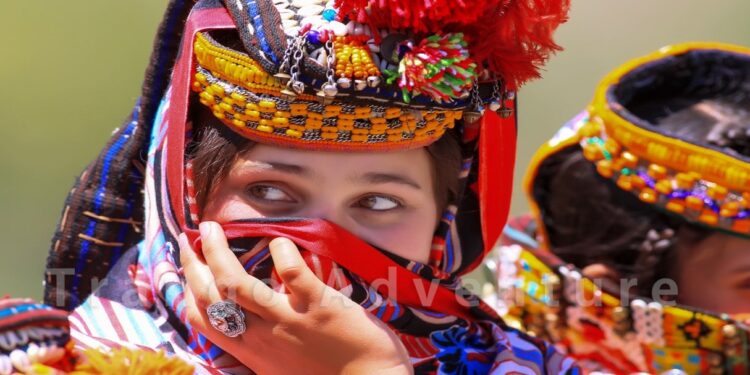Indigenous cultures, rich with history, tradition, and wisdom, are an essential part of our global heritage. These cultures offer unique perspectives on life, nature, and community that are becoming increasingly valuable as the world becomes more connected. However, the rapid pace of modernization, urbanization, and globalization has put tremendous pressure on these cultural traditions, often causing them to fade or disappear. Preserving indigenous cultures is not only crucial for respecting the heritage of these communities but also provides an opportunity for the world to learn from their sustainable and communal ways of life. This article explores how indigenous cultures are navigating the challenges of modernity and the importance of keeping these traditions alive.
The Importance of Indigenous Knowledge
Indigenous cultures hold a wealth of knowledge that spans across various areas, from medicine and agriculture to art and spirituality. This knowledge has been passed down through generations and is deeply rooted in their understanding of nature and the environment. Indigenous practices are often highly sustainable, offering insights into how to live in harmony with the land, which is essential in the face of current environmental crises. These practices, however, are often overlooked in mainstream narratives, making their preservation even more challenging. By integrating indigenous knowledge into modern practices, societies can find solutions to contemporary issues like climate change, biodiversity loss, and sustainable resource management.
Cultural Erosion: The Threats to Indigenous Traditions
One of the greatest threats to indigenous cultures is the erosion of their traditions due to the influence of modern lifestyles. Globalization has led to the spread of a homogenous culture that often overshadows local customs and practices. Younger generations, particularly those moving to urban areas, may feel pressured to assimilate, which often means leaving behind traditional languages, crafts, and customs. As indigenous communities face economic challenges, they may be compelled to adopt modern lifestyles that prioritize material success over cultural values. This shift can lead to a loss of identity for these communities, creating a void that disconnects individuals from their heritage and community.
Efforts to Revitalize Indigenous Languages
Language is a vital aspect of cultural identity, and the loss of language can result in the loss of an entire way of thinking and understanding the world. In many indigenous cultures, languages are endangered or have only a few speakers left. To combat this, various initiatives are being introduced to revitalize indigenous languages, such as incorporating native languages into school curricula, creating digital resources, and encouraging storytelling among elders and youth. Governments, NGOs, and indigenous leaders are working together to make language revitalization efforts more accessible. When young people learn their native languages, they are not only connecting with their heritage but also gaining a sense of pride in their cultural roots.
The Role of Art and Crafts in Preserving Identity
Art and crafts play an essential role in indigenous cultures, serving as both a form of expression and a means of preserving history and tradition. Indigenous art often tells stories of ancestry, spirituality, and connection to the land, making it a vital tool for cultural preservation. In recent years, there has been a resurgence of interest in indigenous crafts, such as weaving, pottery, and beadwork. By promoting and supporting indigenous artisans, communities can preserve their traditional crafts while also creating economic opportunities. Moreover, for people worldwide, purchasing indigenous art or Diwali gifts with cultural significance can serve as a meaningful way to honor these traditions.
Indigenous Festivals: Celebrating Culture and Community
Festivals are another powerful way to preserve and celebrate indigenous cultures. Indigenous festivals bring communities together to honor their history, beliefs, and customs through song, dance, and storytelling. These events offer an opportunity for people outside the community to witness and appreciate the richness of indigenous traditions. In some cases, festivals have become national or even international events, drawing visitors and raising awareness about the culture. Such celebrations not only help to sustain these traditions but also instill a sense of pride and belonging in younger generations.
The Role of Technology in Preserving Indigenous Cultures
While modernization has posed challenges to indigenous traditions, technology has also become a valuable tool in preserving these cultures. Social media platforms, digital archives, and online communities allow indigenous people to share their stories, language, and customs with a global audience. Virtual reality and digital mapping projects are being used to document sacred sites, traditional practices, and endangered languages, making them accessible to future generations. By harnessing technology, indigenous communities can find innovative ways to keep their traditions alive and relevant in a rapidly changing world. Moreover, digital platforms provide a space for indigenous voices to be heard and respected on a global scale.
Conclusion: Embracing Indigenous Wisdom in Modern Society
Indigenous cultures offer invaluable insights into sustainable living, respect for nature, and the importance of community, which are increasingly relevant in today’s world. Preserving these traditions is not merely about maintaining a link to the past; it is also about creating a foundation for a more balanced and harmonious future. As people become more aware of the value of indigenous knowledge and practices, they have the opportunity to support these communities, whether by attending festivals, buying traditional crafts, or advocating for their rights. By embracing and respecting indigenous cultures, society can create a world where tradition and modernity coexist, enriching the lives of all people.

